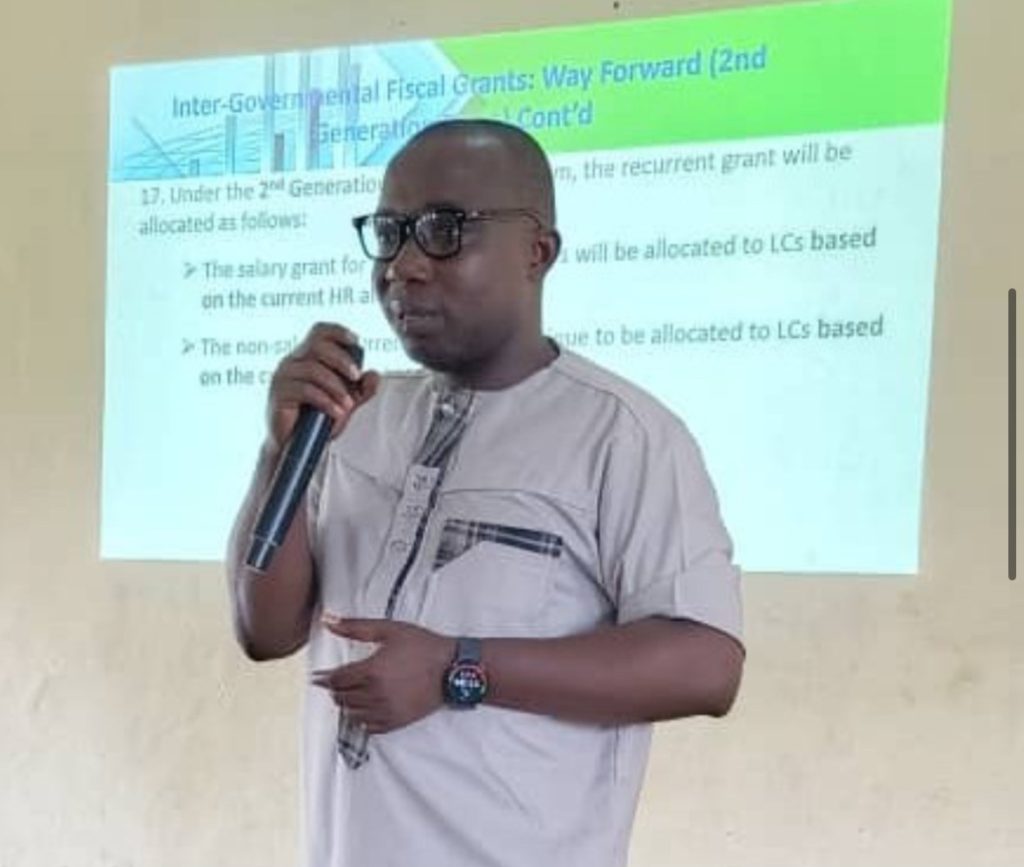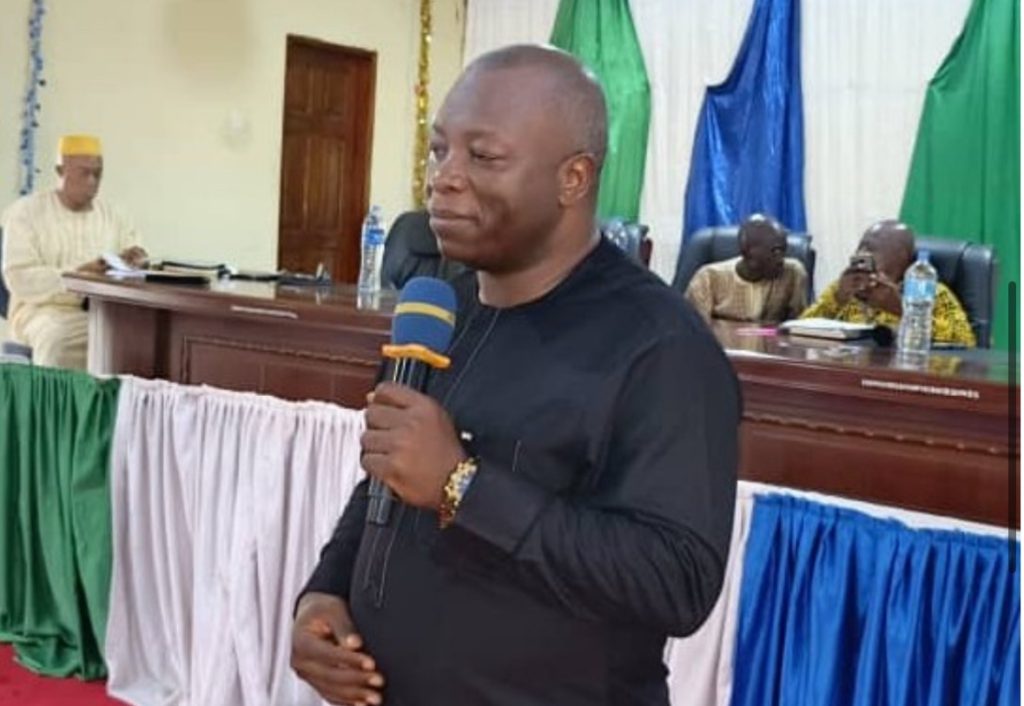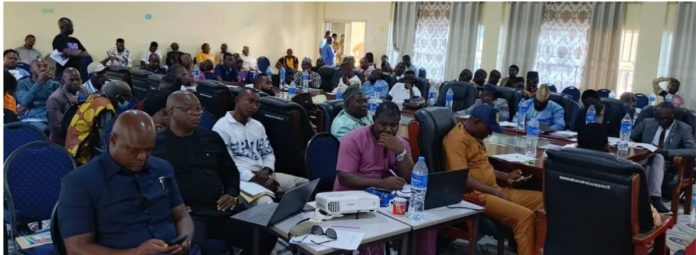The Fiscal Decentralization Division in the Ministry of Finance with support from the Accountable Governance for Basic Service Delivery Project has over the week completed Central and regional level rollouts of the newly approved Fiscal Decentralization Policy (FDP) and Implementation Strategy2025. This follows Cabinet approval of the FDP in the first quarter of 2025. The rollout at the central level brought together Departments and Divisions within the MoF, Local Government and Community Affairs, the LGSC, Human Resources Management Office (HRMO), AGBSD Project IUs and other relevant MDAs while the regional level rollouts in the North and South-East targeted all twenty-two LCs, Paramount Chiefs, None State Actors (NSAs), the Project Coordinating Unit and FDD staff and media representatives.
The goal of the Policy is to empower Local Councils (LCs) with financial autonomy and decision-making authority to better meet their specific needs of their communities while promoting accountability, efficiency, and economic development while thePolicy Vision is to establish a stable, predictable and transparent fiscal framework which aligns the mandated devolved expenditure functions with funding resources to deliver those mandates. This is according to the Director of FDD, Mr. Adams Kargbo. He added that the Fiscal Decentralization Policy is being introduced to address the gaps identified in the Decentralization Act of 2016 and overall,thereby strengthen decentralization in country.

The Project Coordinator of the Accountable Governance for Basic Service Delivery Project(AGBSDP), Mr. Adams Tommy in his brief remarks stated that his project with support from the World Bank is pleased to support the development of the fiscal decentralization policy, its rollout and importantly the implementation of the recommendations and action points that forms part of the policy. He added that the Project is also supporting the Inter-Ministerial Committee (IMC) in the Office of the Vice President to provide technical support and monitor the implementation progress of the recommendations and plan of actions to actualize the overall goal, objectives and vision on the Fiscal Decentralization Policy and Strategy 2025.

In his presentation of the policy’s main contents, the Assistant Director of FDD, Mr. Salieu Kamara cited that the objectives of the Fiscal Decentralization policy include: to guide the allocation of expenditure and revenue functions between the central government (CG) and local councils (LCs) to ensure an appropriate balance between revenues with assigned expenditures, clarify Local Councils revenue structures and provide support for increased local own source revenue mobilization, to provide an intergovernmental grant structure that will provide predictable, efficient and equitable funding for LC expenditure functions, to establish a policy framework for prudent Local Council borrowing, develop a fiscal framework for supporting LCs’ development planning, budgeting and financial accountability and does clarify institutional arrangements for implementing and monitoring the FD policy.
He added that the Policy is based on six principles which include: Finance follows Functions, Subsidiarity, Vertical and horizontal balance, Stability, predictability and transparency, Dynamism and empowerment and Accountability, transparency. The policy Framework is anchored on four pillars:
• Pillar 1: Expenditure Assignment which identifies principles and way forward on how expenditure functions are allocated across the Central Government and Local Councils.
• Pillar 2: Revenue Assignment which establishes principles and way forward for revenue assignment and for the revenue instruments assigned to the Local Councils.
• Pillar 3: Intergovernmental Fiscal Transfers which outlines guiding principles, the system of transfers between Central Government and Local Councils and the way forward. These transfers provide both recurrent and capital funding resources which are required to complement LC own source revenues (OSR) needed to deliver LC mandated functions.
• Pillar 4: Local Council Borrowing which defines the principles and way forward for LC borrowing.
The Chairman of Bombali District Council, Dr. Mohamed Mark Barbah Sisay who doubles as the Vice President of Chairpersons in the North and Northwest expressed thanks and appreciation to the Ministry of Finance through the Fiscal Decentralization Division and the Ministry of Local Government and Community Affairs for their collective efforts in advancing local governance and improve service delivery through the development, rollout and would be Implementation of the policy. He expressed profound thanks to the Government and the donor, World Bank for providing the funds through the Accountable Governance Project. He encouraged all participants to pay keen attention to the presentation on the policy content and pledged that the Locals Councils look forward to the successful implementation of the policy and strict adherence by all concerned stakeholders to the policy.
The Director of Decentralization Secretariat, Alex Bhonopha while delivering the key note address on behalf of the Minister of Local Govt and Community Affairs informed stakeholders that the implementation of this policy will give rise to the review of the Local Government Act as one the key recommendations in the new fiscal decentralization policy document. He added that with the reviews, thorny revenue issues between the District Councils and the Chiefdom Authorities will be addressed and therefore called on all local government stakeholders to have fruitful discussions on the policy content and its implementation plans.
Paramount Chiefs representatives PC Alimamy Morrie Jalloh in the North and PC Tshombi Karqoi in South both expressed profound appreciation to the Ministry, the Government and donor for the development and rollout of the policy and both expressed hope that the policy will be fully implemented to address all challenges in enhancing effective collaboration between the Local Councils and the Chiefdoms. According to PC Alimamy Jalloh, chiefdoms are central in revenue generation process, but as he put it, not all chiefdoms are economically viable and therefore should such dynamics should be taken into account. He called on all his colleague Paramount Chiefs to support Local Councils and the Central Government in revenue generation drive as the Fiscal Decentralization Policy is being rolled out by the FDD.

